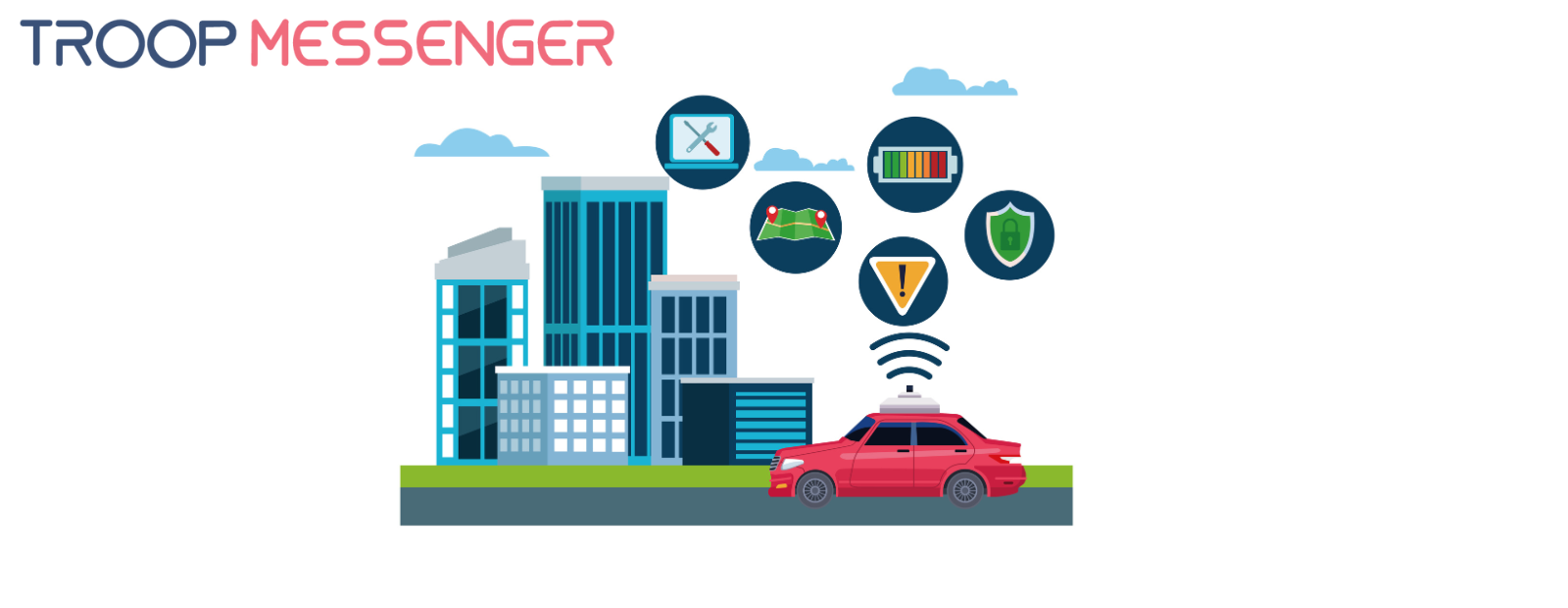Connect with us

How to Make Sure Your Remote Team Isn't a Cybersecurity Threat?
In today's digital landscape, remote work has become the new norm for many organizations. The flexibility and convenience it offers have revolutionized the way we work, enabling teams to collaborate seamlessly regardless of geographical boundaries. However, this shift to remote work brings with it a heightened need for robust cybersecurity measures. With sensitive data and critical systems accessed from various locations, ensuring that your remote team isn't a cybersecurity threat becomes paramount.
In this blog post, we will explore essential strategies and best practices to safeguard your remote team and protect your organization from potential cyber threats. By implementing these measures, you can create a secure working environment that allows your team to remain productive while minimizing the risk of cybersecurity breaches.
Table of Contents
- Tip 1: Be careful with public Wi-Fi
- Tip 2: Use a secure connection
- Tip 3: Make sure all devices are up to date
- Tip 4: Use strong passwords
- Tip 5: Be aware of phishing scams
- Tip 6: Use two-factor authentication
- Tip 7: Don't share too much personal information
- Tip 8: Use a strong antivirus program
- Tip 9: Update your software and apps regularly
- Tip 10: Backup your data
- Tip 11: Educate yourself and your team
- Conclusion
Tip 1: Be careful with public Wi-Fi
Public Wi-Fi can be a hacker's dream come true. It's easy to set up a fake Wi-Fi network, and once someone connects to it, the hacker can see all of their traffic. If you have a remote team, and especially digital nomads on your team, there is a good chance that people are going to be connecting via places like airports, shared workspaces, and cafes around the world.
For this reason, it's important to be very careful when using public Wi-Fi. Don't do anything sensitive (like online banking) on a public network, and make sure to use a VPN or encrypted messaging software whenever possible. You should lay some ground rules for your remote workers when it comes to working at these sorts of places and what kind of work can and cannot be done here. This can also be coupled with good data center monitoring and compliance to make sure access is tightly controlled.
Tip 2: Use a secure connection
When you're working remotely, it's important to use a secure connection. This means connecting to the internet through a VPN (a virtual private network) or using an encrypted messaging app.
A VPN creates a secure tunnel between your device and the internet, making it harder for cybercriminals to eavesdrop on your traffic or steal your data. Similarly, encrypted messaging apps like Signal or WhatsApp encrypt all of your communications, making them unreadable to anyone who might try to intercept them.
Tip 3: Make sure all devices are up to date
One of the easiest ways to make sure your team is practicing good cybersecurity is to make sure all devices are up to date. Outdated devices can be more susceptible to cyberattacks, so it's important to keep them updated with the latest security patches. Instruct your remote employees to regularly check for and install updates to their devices' operating systems and software. And ensure the office chat app you are using is end-to-end encrypted.
Additionally, you can have people set up all of their applications and devices for auto-updates so that as soon as a new patch or piece of software becomes available, it can be immediately installed. Often, these patches are expressly created to address a cybersecurity issue, so they are important to stay on top of.
Tip 4: Use strong passwords
One of the best ways to protect your data is to use strong passwords. A strong password is one that is difficult for a hacker to guess, and it should be different for each of your accounts.
It's also important to never use the same password for multiple accounts. If your password is compromised at one site, hackers will have access to all of your other accounts. You might also consider recommending a password randomizer to your employees. The more random the password, the more difficult it will be to guess. This should always be in addition to good phishing protection practices as well.
Tip 5: Be aware of phishing scams
Phishing scams are one of the most common ways for hackers to steal people's information. A phishing scam is an email or message that looks like it's from a trusted source but is actually designed to steal your data. Use a secure notification system like WeavePoP, WeavePOP notifications aren't in regular phone systems, see how WeavePOP works.
For this reason, it's important to be aware of phishing scams and never click on any links or open any attachments unless you are sure they are safe. If in doubt, contact the company directly to ask if the email is legitimate.
Tip 6: Use two-factor authentication
Two-factor authentication is a security feature that requires you to provide two pieces of information in order to log in to your account. This could be a password and a code that is sent to your phone, for example.
Two-factor authentication is a great way to protect your account from hackers, as they would need both your password and your phone to log in. You can enable two-factor authentication on most websites and apps.
Tip 7: Don't share too much personal information
When you're working remotely, it's important to be careful about what information you share online. Cybercriminals often use social engineering techniques to steal people's personal information, so it's best not to give them anything they can use. When you're working remotely, it's important to be careful about what information you share online. Cybercriminals often use social engineering techniques to steal people's personal information, so it's best not to give them anything they can use. Now that so many people are working remotely, criminals know people are doing personal and professional business at the same time which makes for a prime target. If you're reviewing cryptocurrency prices in your account at the same time as replying to the email you may be in jeopardy of losing more than access to Gmail.
Don't share your passwords or credit card information, and be careful about what information you post on social media. And if you ever receive a phishing email, don't click on any links or open any attachments – just delete it.
Tip 8: Use a strong antivirus program
Antivirus programs are essential for protecting your computer from malware and other cyber threats. Make sure to install a good antivirus program and keep it up-to-date. If you use Windows, then the built-in Windows antivirus software does quite a good job, but there is always room for more robust antivirus protection.
Consider using a paid antivirus program, like Norton or McAfee, or a free antivirus program, like Avast or AVG.
Tip 9: Update your software and apps regularly
One of the best ways to protect your computer is to keep all of your software and apps up-to-date. Hackers often exploit known vulnerabilities in software, so it's important to install the latest updates as soon as they become available.
Many apps and programs will automatically update themselves, but you may need to manually update some of them. Check the settings for your apps and programs to see if there is an automatic update option, and make sure to enable it.
At the same time, you have to educate your staff on what types of apps are safe to download. For example, your iPhone could be compromised if you granted a shady app permission to use your data. Fortunately, there are ways to tell if your iPhone is hacked. If you or your employee's iPhone is using more data than usual, jailbroken when it shouldn't be, or has an unfamiliar app installed, speak to your IT department immediately to reduce the damage.
Tip 10: Backup your data
If your device is ever compromised or lost, it's important to have a backup of your data. This could mean having your files saved to a cloud storage service or an external hard drive.
That way, if something happens to your device, you'll still have your files safe and sound. Not only that, but as ransomware becomes an ever-larger threat, it's important to have a backup of your files in case they get encrypted by ransomware.
Tip 11: Educate yourself and your team
Cybersecurity is a complex topic, and it can be tough to keep up with the latest threats. But it's important to educate yourself and your team about the dangers of cybercrime so that you can stay safe online. Cybersecurity training & programs are the best options to keep your employees up to date with cybersecurity threats and prevent an attack! There are lots of great resources available online, so start by doing some research and then follow it up with some hands-on training.
It is a fact that employees and their lack of up-to-date cybersecurity knowledge continue to constitute the biggest cyber threat to businesses. In addition to simply making people aware of the dangers, there are also plenty of cybersecurity consultants and courses you can look into.
Conclusion
In summation, practicing good cybersecurity is essential for anyone who works remotely. By following these tips, you can protect yourself and your team from cyber threats and keep your data safe.
Remember to always use strong passwords, enable two-factor authentication, and install a good antivirus program. Additionally, make sure to update your software and apps regularly and back up your data. And finally, educate yourself and your team about cybersecurity so that everyone stays safe online.








